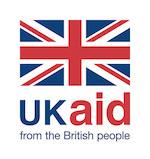The GSMA Mobile for Humanitarian Innovation Fund aims to promote innovation in the use of mobile technology to address humanitarian challenges. The first round of the Fund focused on providing support to help to test or scale innovative ideas which support responses to humanitarian emergencies. This blog post shares three key lessons from our project with Lumkani in partnership with Hollard Insurance and Islamic Relief South Africa: Lumkani Fire Detection and Insurance, South Africa.
The GSMA provided grant funding to Lumkani to enable them to install mobile-internet-of-things enabled fire sensors inside homes in informal settlements across South Africa at zero-cost to users. The alarms mitigate fire risk through a networked alarm which provides live monitoring and SMS alerts to residents and their neighbours allowing instant notification of fire events and triggering a swift community response.
Additionally, once fire detectors are installed users are able to opt-in to a micro-insurance scheme which will insure their homes and possessions against damage or loss to fire.
Over the course of the grant, the project installed fire sensors in 20,182 households, providing cover to 66,478 people and provided micro-insurance to cover more than 56 million Rand (2.5 million GBP) worth of assets. The fire detectors supported limiting the spread of 94 per cent of fire events during the grant project, and it won the team a GLOMO award for “Best Mobile Innovation supporting Emergency or Humanitarian Situations”.
Three key lessons
1. Lumkani fire sensors increase resilience to fire events
The installation of Lumkani devices leads to households feeling safer. They also provide households and communities with early warning to fires and the ability to respond to fires in the early stages to reduce damage to life and property before fires become unmanageable. Additionally, an evaluation study showed nine in ten households agree that the devices provide an effective early warning system and give them more time to save their family and important possessions.
2. Lumkani micro-insurance improve users’ sense of security
Insurance customers reported feeling more confident when they leave their homes for an extended period and that due to the cover, they felt much less fearful and anxious about bad things happening in their homes. Additionally, households also reported feeling more financially secure and more inclined to buy valuable possessions due to the Lumkani micro-insurance product they paid for.
3. Lumkani fire sensors increase coping capacity
As formal emergency services struggle to easily access many fires in informal settlements, responses tend to be community led. Households tend to respond to fires in a similar manner, regardless of the presence of a Lumkani device (mostly using water to extinguish fires or attempting to destroy burning building to prevent it spreading). However, 58 per cent of households with a device reported changing the way they respond to fires. This is because of the networked-alarm or SMS message alert households.
User story – Lindy
Lindy has been living in Taiwan settlement in Cape Town since 1980 and lives with her two children. She is currently does odd-jobs for an income. In December 2019 there was a fire in her home, started by overloaded electricity, which destroyed the whole property and all her possessions.
Her Lumkani sensor notified her to the fire and she also received an SMS message. She was satisfied that her insurance cover and fire sensor both delivered on the promises made to her by the Lumkani team.
Lumkani continues to expand, exploring additional insurance products which can be offered as part of the Lumkani service, as well as looking to reach new communities in South Africa and internationally.
Read about these lessons in more depth, and all of the outcomes of our GSMA funded project with Lumkani by downloading the grant case study, and reading our report on all of the round one grantees.
If you want to learn more about Lumkani, you can visit their website. You can also hear Francois Petousis, Director of Humanitarian Projects, on the GSMA M4H Podcast, as well as on our YouTube page talking about the grant project itself.
Find out about all of our Mobile for Humanitarian Innovation Fund grantees by visiting our interactive map, with detailed project information.


